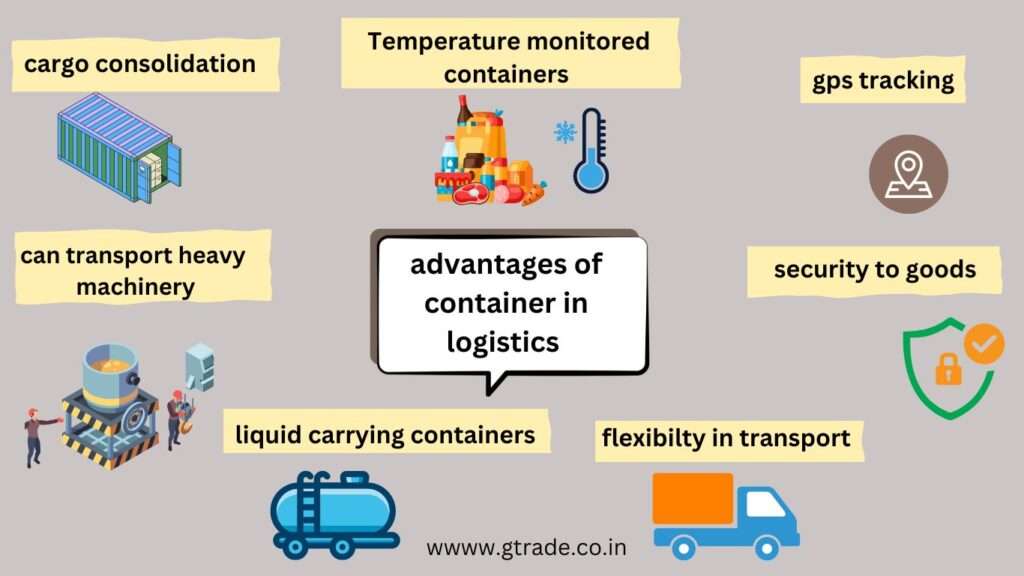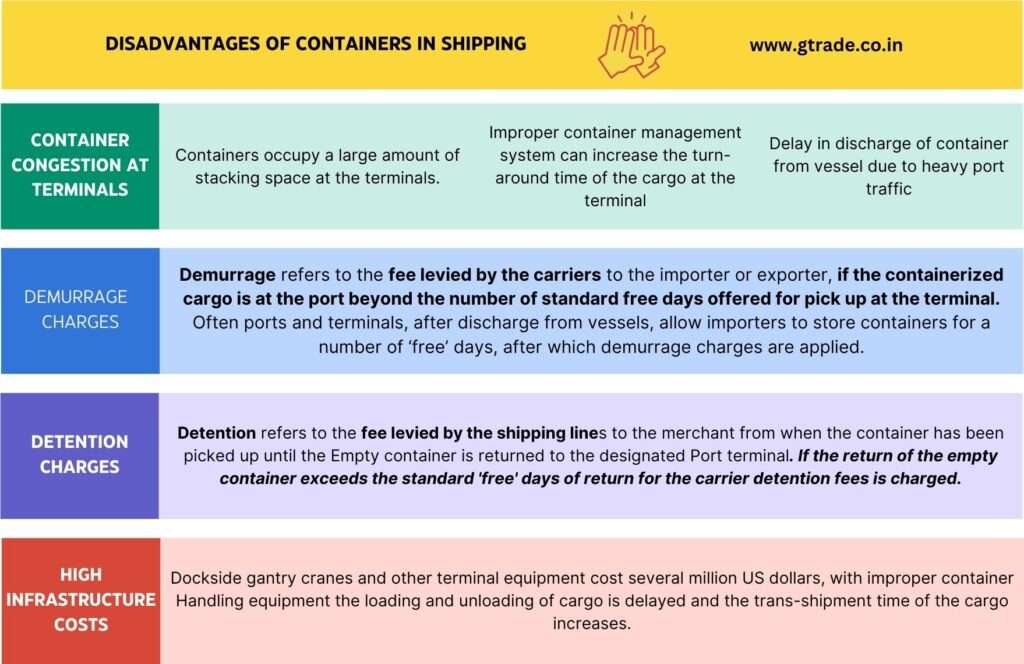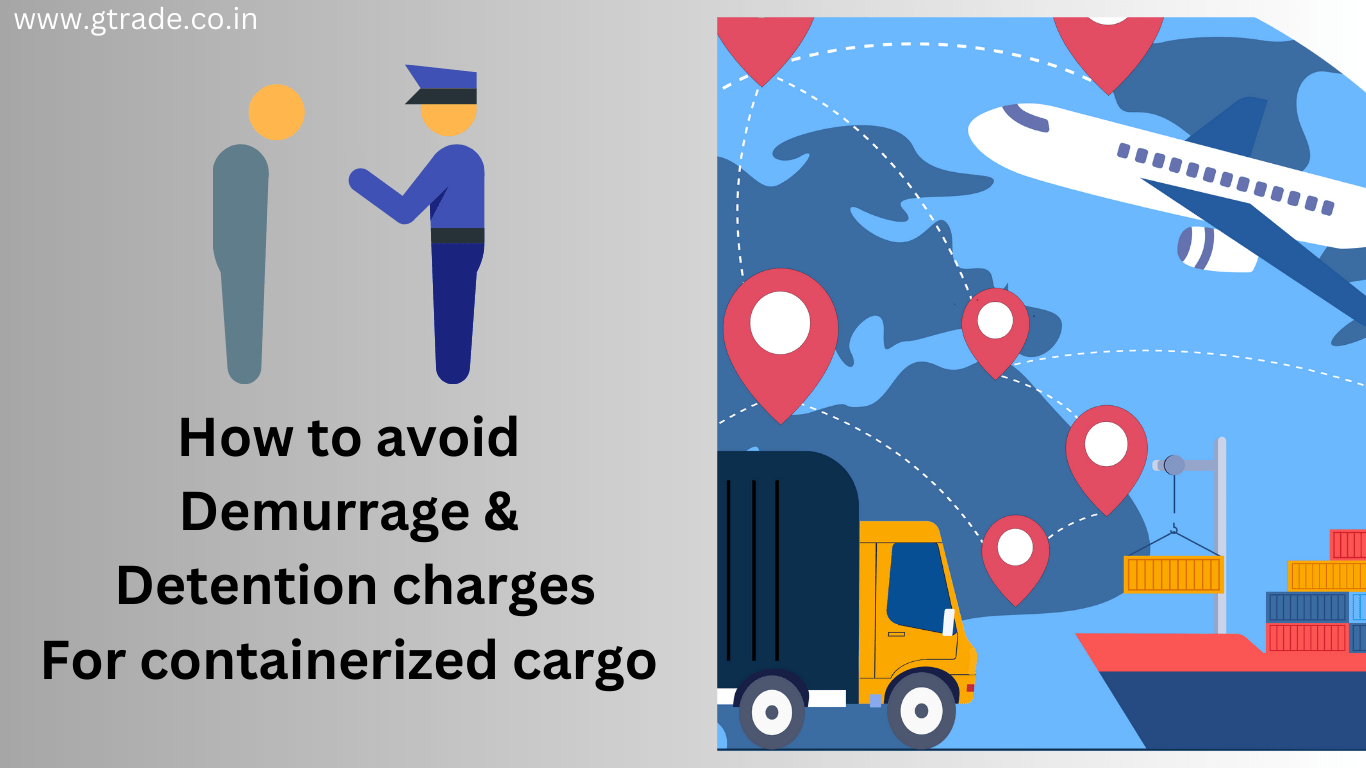when is demurrage and detention charges levied in exports
Containerized cargo has now become the norm in the world of export and imports because of smooth streamlining of operations. However due to uncontrollable factors, container management and delivery on time is jeopardized. Carriers (shipping lines) can charge hefty demurrage and detention charges, if it takes longer than expected for their containers to be emptied and returned to the designated port. These fees are implemented when there is a delay issue outside the carrier’s control, whether or not it is the fault of the shipper. Understanding the demurrage and detention charges is crucial to avoid high demurrage and detention charges in exports
Demurrage and detention charges in shipping
- Demurrage refers to the charges levied by the carriers to the importer, if the containerized cargo is at the port beyond the number of standard free days offered for pick up at the terminal.
- Detention refers to fee levied by the shipping lines to the merchant from when the container has been picked up and till the time the Empty container is returned to the designated Port terminal. If the return of the empty container exceeds the standard ,free’ days of return for the carrier detention fees is charged.
what is demurrage charges?
Demurrage is a fine levied by a carrier to the buyer if they do not take their goods away from a port or terminal. after expiry of free days of storage at port terminal. Often ports and terminals, after discharge from vessels, allow importers to store containers for a number of ‘free’ days, after which charges are applied.
The standard number of days the container can be kept at the terminal after discharge from the vessel is 5 days . from the 6th day demurrage charges will be collected on daily basis from the merchant.
what is detention charges?
Detention is applied, from when the container has been picked up, and till the time the empty container is returned to the carrier, exceeds the standard free days of return, in such a case Detention is charged..
The number of standard free days of return is 3-5 days but it varies from port to port.
Advantages of containers in Shipping
Container transportation in shipping have their own advantages and disadvantages.

- Containers consolidate the cargo, So that the cargo can be easily transported.
2. containers can be tracked through GPS tracking to know the status of the container at any point of time.
3. Reefer containers contains help in preservation of foods, beverages, medicines for long distance ports.
4. containers provide security to the cargo having an unique tracking number and a tamper proof seal.
5. containers come in varies shapes and sizes carrying a range of goods from grains to heavy machinery
6. Iso tank containers are used to carry liquids oils, and special chemicals etc.
7. container transport provide flexibility in shipping cargo through roads and other modes of transport.
8. container handling equipment has made loading and unloading cargo increasing the speed of transportation
Disadvantages of containers in shipping

How to avoid demurrage and detention charges
1.Understand shipping contract: Understand and negotiate contracts with the shipper. Look through the charges and make sure you will be able to meet the terms. If you’re expecting delays, attempt to ask for extra free days.
2. Understand the contract incoterms: In your contract YOU should understand the INCOTERMS, what roles and responsibilities you have in the shipment of goods.
3.Pre-clear customs: Understand the customs clearance process and port regulations, and provide the correct documentation to smoothen the process.
4. Reliability of land courier: Investigate your land couriers’ reliability, keeping in mind loading and unloading times of your shipment.
5. Have a backup multimodal transport: Have a backup land courier for the movement of goods and containers. Investigate whether other ports (with less congestion) are available if demurrage is the issue. Or if the detention is a concern, check availability of space availability at container drop-off points or ICD’s
8. check the number of days for documents submission to bank: letter of credit, bill of lading and other documents should be submitted as per guidelines of the contract within the due date.
6. Use SOC containers for eliminating demurrage and detention charges: most of the containers are carrier-owned containers (COC) is a convenient way to transport shipments of goods around the world. However, the attract demurrage and detention fee if the exact time of pick-up and return of the containers is not maintained.
Shipper-owned containers (SOC); while requiring an initial investment in purchasing the container itself, can reduce long-term additional charges and make budgeting easier. You don’t have to worry about paying late fees when you just buy the booking.
A SOC comes in handy to an organization that may want to export cargo in two situations :-
a)To Avoid demurrage charges -when shipper expects for a delay in clearance of a container from the port beyond a certain number of days
b) To Avoid detention charges- when shipper expects delay in the return of empty containers after destuffing the cargo, beyond a specified number of days.

